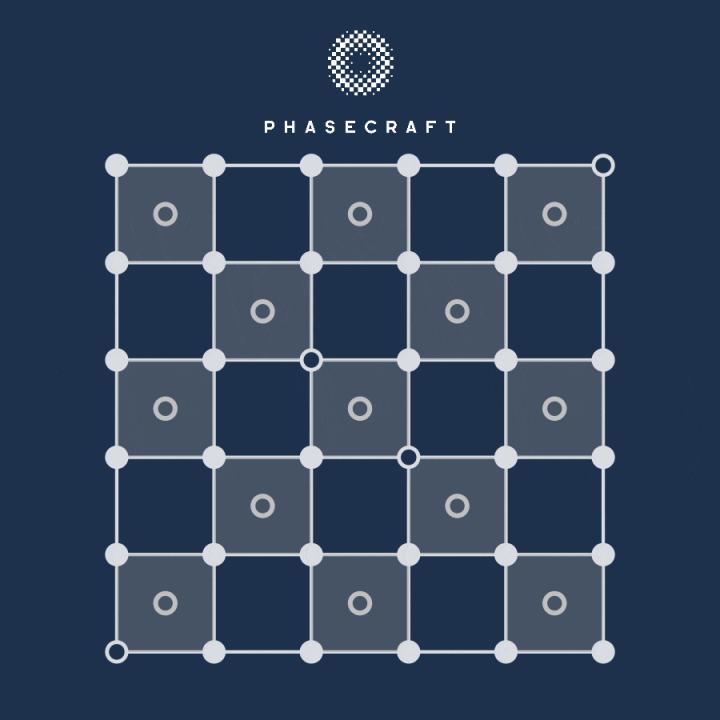UK quantum software startup Phasecraft, spun out of UCL and University of Bristol, releases peer-reviewed research that shows significant improvement beyond previous techniques for simulating fermions on quantum computers

Credit: Phasecraft Ltd
One of the most significant challenges in the global R&D effort towards better energy technologies — efficient and accurate material simulation — may be one step closer to being solved, based on new techniques released by UK-based quantum software startup Phasecraft.
The new peer-reviewed study in the Physical Review B journal from the American Physical Society sets out a novel technique for modelling fermionic particles — like electrons — which significantly reduces the quantum hardware resources needed to perform simulations.
Phasecraft’s Joel Klassen, who co-led the study, explained, “One of the most exciting potential applications for quantum computing is simulating physical systems like materials. Using new tools, like quantum computers, to develop a better understanding of how the natural world works has historically often led to dramatic technological breakthroughs. Our results reduce the resources required to perform these simulations, bringing this application closer to reality.”
“Many important fields such as Chemistry and Materials Science are concerned with the dynamics of fermion particles in physical systems – in the form of electrons. Fermions are notoriously difficult to simulate on regular computers so being able to simulate them efficiently on a quantum device would provide a faster path to tackling hard problems in these areas of research such as understanding high temperature superconductivity or improving chemical reaction efficiency,” commented Charles Derby, a Phasecraft team member and PhD candidate at UCL, who co-led the research.
“Our compact representation of fermions outperforms all previous representations improving memory use and algorithm size each by at least 25% – a significant step towards realising practical scientific applications on near-term quantum computers.”
Although quantum hardware has seen significant improvements in recent years, existing devices remain limited and prone to a buildup of errors, and a gap exists between what hardware can do and the resources software needs. The new modelling technique not only helps close this gap, but has the added benefit of being able to detect errors in the computation. The lead authors, along with their collaborators, Toby Cubitt and Johannes Bausch at Phasecraft, lay out how this additional feature could be used to help address these errors.
Building on these findings, Phasecraft is conducting small-scale experiments to demonstrate these resource improvements and error mitigation methods on quantum hardware, as well as working with established industry partners to explore how they may be applied to battery material simulation.
“Another compelling part of this new approach is the error detection and mitigation integrated into the fermion encoding, which are particularly important on near-term, noisy quantum hardware,’ explained Phasecraft consultant and research contributor Johannes Bausch.
Phasecraft co-founder and research contributor Toby Cubitt commented “At Phasecraft, we aim to speed up the timeline for quantum advantage. This new research continues our pioneering achievements for creating compact, resource-efficient, error-resilient software designed for the limited capacity of near-term quantum hardware. By developing these new techniques that are tuned to quantum hardware’s limitations, Phasecraft may enable potential breakthroughs in energy efficiency and storage, chemistry, and far beyond.”
###
This new research adds to previous research advances, including representing the Fermi-Hubbard model, also featured in the Physical Review B journal.
Citation: C. Derby, J. Klassen, J. Bausch, T. S. Cubitt, Compact Fermion To Qubit Encodings, Physical Review B, Vol. 104, Iss. 3 — 15 July 2021. http://www.
Read the Phasecraft insight piece here: https:/
Additional information on Phasecraft advances are online here: http://www.
About Phasecraft
Phasecraft is taking quantum theory from research to reality, faster. Phasecraft was founded in 2019 by Toby Cubitt, Ashley Montanaro, and John Morton, expert quantum scientists who have spent decades leading top research teams at UCL and the University of Bristol. Phasecraft collaborates with leading quantum hardware companies, including Google, IBM, and Rigetti, academic and industry leaders, to develop high-efficiency software that evolves quantum computing from experimental demonstrations to useful applications. Learn more: http://www.
Media Contact
Katy Zack
[email protected]
Original Source
https:/
Related Journal Article
http://dx.




